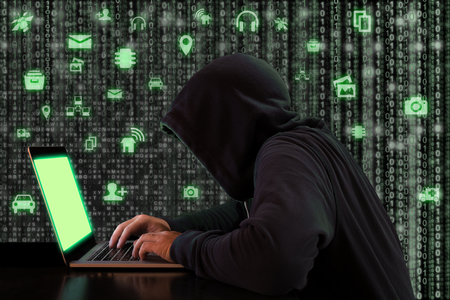16 January, 2017
The next post in the series highlighting our 2017 Cybersecurity Predictions introduces our prediction about the impact and growth of nation state-led cyber activity. We continue to see the story of the U.S. presidential election cyber attacks develop in light of a recent U.S. intelligence report, confirming its belief that Vladimir Putin ordered the influence campaign. We will be keeping an eye on how this attack and others contribute to changing global policy.
Cyber espionage will continue to influence global politics and will spread to the upcoming elections in Latin America and Europe. Russia, China, Iran, and North Korea will be regions of great concern in 2017, as they continue to develop deep pools of cyber- crime talent. However, shifting internal politics and emerging U.S. foreign policy has the potential to influence this prediction.
The 2016 U.S. election season was rocked by nation state-backed cyber attacks designed to obtain and release embarrassing information on political figures and party organizations, spreading suspicion and uncertainty among the public[1]. Politicians and political party leaders were stung by leaked email revelations and forced to respond to the fact they could no longer conduct negotiations and politics in the shadows. In response, in December 2016 U.S. President Barack Obama levied sanctions against nine entities and individuals over their alleged interference in the election. The administration also ordered 35 Russian diplomats to leave the country and two Russian compounds are being closed[2].
2017 will bring about more attacks from countries seeking to access and exploit sensitive information to realize their national interests, whether to wage an information war or conduct other destabilizing attacks such as disrupting networks or utility grids. Cyber espionage and nation-state cyber warfare will escalate this year until it reaches a point that could be the cyber equivalent of the Cuban Missile Crisis.
With the decline in Chinese cyber espionage attacks on the United States, China will shift its efforts toward other countries, potentially Japan and South Korea. South Korea, a world leader in Internet connectivity, with the world’s fastest Internet connection speed and highest Internet penetration per capita (over 85 percent, while smart phone penetration rate is 80 percent), is a prime target[3]. It is also vulnerable – the country has already fallen victim to hacking of its financial institutions, stolen Korean Identification Numbers (KID), and malicious software disrupting government, public, and private networks and critical infrastructure.
Russia, China, Iran, North Korea, and other countries with deep cyber-crime talent pools will continue to be the greatest concern in 2017. Both China and North Korea organize training institutes for cyber hackers and cyber attack forces at the national level and possess highly advanced technology to launch cyber-attacks. These countries have developed information theft and other disruption activities that are used daily, penetrating the networks of government agencies and industries in Japan and the United States[4]. Russia’s Ministry of Defense is establishing its own cyber command, which according to senior Russian military officials will be responsible for conducting offensive cyber activities, including propaganda operations and inserting malware into enemy command and control systems. Russia’s armed forces are also establishing a specialized branch for computer network operations[5].
BOTTOM LINE:
In 2017, nation states will use cyber attacks to influence elections and policymaking in countries that do not share their political agendas. We will see a challenge to the status quo that taking down infrastructure on a huge scale requires the resources of one of these nation states. Expect highly skilled criminal groups that previously targeted the critical infrastructure of major regulated industries to move on to non-top tier targets with weaker defenses but equally valuable data, such as credit unions, less mature financial institutions, healthcare institutions, and manufacturing supply chains.
To see how our 2016 predictions measured up and read the full 2017 Cybersecurity Predictions report, CLICK HERE.
[1] Wall Street Journal, Russian Hackers and American hacks, December 12, 2016. http://www.wsj.com/articles/russian-hack- ers-and-american-hacks-1481499091
[2] CNN, White House announces retaliation against Russia: Sanctions, ejecting diplomats, December 30, 2016 http://edition.cnn. com/2016/12/29/politics/russia-sanctions-
announced-by-white-house/index.html?adkey=bn
[3] United States Dept. of State, Bureau of Diplomatic Security, OSAC, “South Korea 2016 Crime and Safety Report,” April 2016. https://www.osac.gov/pages/ContentReportDetails.aspx?cid=19449
[4] The Georgetown Journal of International Affairs, Nitta, Dr. Yoko, “Cyber Intelligence: The Challenge for Japan,” March 17, 2015. http://journal.georgetown.edu/cyber-intelligence-the-challenge-for-japan/
[5] House Permanent Select Committee on Intelligence, James Clapper, “Statement for the Record: Worldwide Cyber Threats,” Sept. 10, 2015. https://www.dni.gov/index.php/newsroom/testimonies/209-congressional-
testimonies-2015/1251-dni-clap- per-statement-for-the-record,-worldwide-cyber-threats-
before-the-house-permanent-select-committee-on-intelligence
For further information, please contact:
Paul Jackson, Managing Director, Stroz Friedberg
pjackson@strozfriedberg.com

.jpg)





